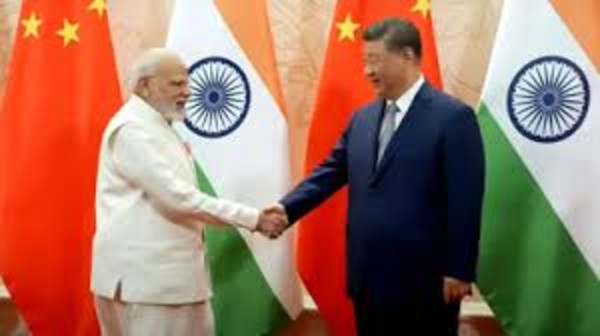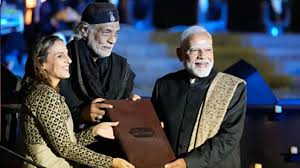The 25th Shanghai Cooperation Organization (SCO) Summit, hosted in Tianjin, China, unfolded from August 31 to September 1, 2025. Chaired by President Xi Jinping, it marked the largest gathering in the SCO’s history—with more than 20 heads of state and leaders of 10 international organizations in attendance.
Highlights of SCO Summit 2025
Host Country: China, marking its fifth time hosting the SCO Summit.
Summit Theme: “Upholding the Shanghai Spirit: SCO on the Move.”
Major Focus Areas:
- Adoption of a comprehensive 10-year development strategy (2025–2035).
- Reflection on 25 years of SCO accomplishments and progress.
- Regional security and intensified counter-terrorism cooperation.
- Strengthening of trade, energy partnerships, and connectivity initiatives.
- Renewed emphasis on sustainable development and climate action.
Participation: Over 20 heads of state and 10 leaders of international organizations attended the summit.
The SCO Summit 2025 witnessed participation from member states including India, China, Russia, Pakistan, and Central Asian countries. Discussions focused on counter-terrorism, trade, climate change, energy security, and the role of technology in shaping the global economy.
- Strengthening regional security
- Boosting trade and connectivity
- Enhancing cooperation in energy and digital technology
- Addressing climate and sustainable development
ABOUT SCO : SHANGHAI COOPERATION ORGANIZATION
The Shanghai Cooperation Organization (SCO) was officially established in 2001 by China, Kazakhstan, Kyrgyzstan, Russia, Tajikistan, and Uzbekistan.
Its origins trace back to 1996, when China, Russia, Kazakhstan, Kyrgyzstan, and Tajikistan formed the “Shanghai Five”—a regional framework aimed at building mutual trust and promoting security cooperation.
With the inclusion of Uzbekistan in 2001, the group was renamed the SCO, marking the beginning of broader collaboration across security, trade, and regional stability.
The organization expanded significantly in 2017, when India and Pakistan became full members, bringing new strategic dimensions and diversity to the bloc.
Iran followed as a full member in July 2023, and Belarus joined in July 2024. In addition to these ten full members, the SCO engages with 16 other countries as observers or dialogue partners.
Today, the SCO is recognized as the world’s largest regional organization by geographical coverage and population.
The Shanghai Spirit is the core value of the SCO.
The SCO aims to promote cooperation and mutual support in areas such as trade, investment, energy, transportation, and security.
It is about mutual trust, mutual benefit, equality, consultation, respect for cultural diversity, and the pursuit of common development among the SCO members.
The official working language of the SCO Secretariat is Russian and Chinese.
The main objectives of SCO are:
- Strengthen relations among member states.
- Promote cooperation in political affairs, economics, and trade, scientific-technical, cultural, and educational spheres as well as in energy, transportation, tourism, and environmental protection.
- Safeguard regional peace, security, and stability.
- Create a democratic, equitable international political and economic order.
SCO spans approximately 24% of the Earth’s land area (covering around 65% of Eurasia) and represents close to 42% of the global population.
Economically, it is highly
- “India’s engagement with the SCO reflects a balance between cooperation and strategic autonomy.”
Discuss India’s evolving role in the SCO in the context of regional security and connectivity.
influential—by 2024, SCO countries accounted for around 23% of the world’s nominal GDP and nearly 36% of global GDP based on purchasing power parity (PPP).
The SCO operates under the guidance of the Heads of State Council (HSC)—its highest decision-making body, which convenes annually.
A key pillar of its work is the Regional Anti-Terrorist Structure (RATS), which facilitates coordinated efforts among member states to combat terrorism, separatism, and extremism.
Over the years, the SCO has evolved into a powerful platform for promoting regional security, economic cooperation, and strategic dialogue—with China and Russia playing pivotal roles in shaping its agenda and geopolitical influence.
UPSC MAINS PRACTICE QUESTIONS:
Q1. “India’s engagement with the SCO reflects a balance between cooperation and strategic autonomy.” Discuss India’s evolving role in the SCO in the context of regional security and connectivity.
Q2. “The 2025 SCO Summit reaffirmed the organization’s role in shaping a multipolar world.” Critically analyze the geopolitical and strategic significance of the Shanghai Cooperation Organization in the current global order



